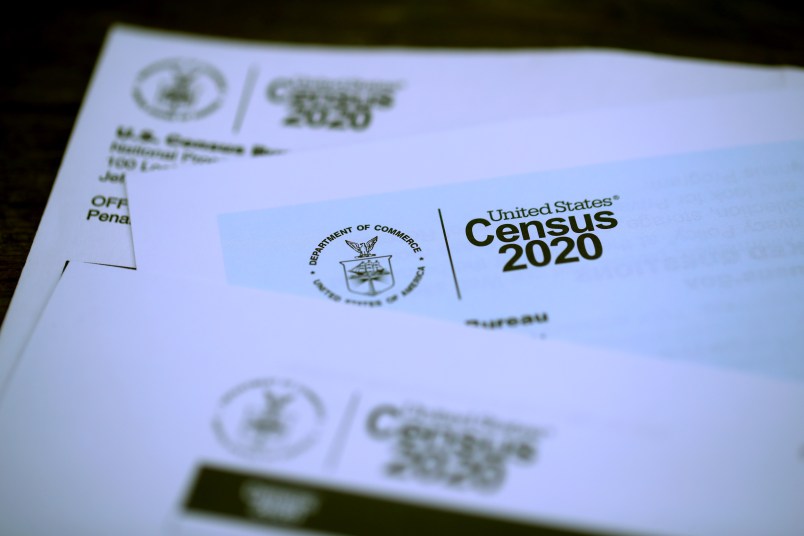Just like the Census Bureau predicted at the beginning of the pandemic, the COVID-19 outbreak has caused major delays in the bureau’s plans to release the data used for apportionment and redistricting, a bureau official confirmed Wednesday.
The candor from the bureau about how far the timeline had been pushed back came after the Trump administration had gone to great lengths to try to get the data released on a much quicker schedule.
In a webinar with the National Conference of State Legislatures, a Census official said that the bureau is now aiming to release by April 30 the state population counts used for apportioning House seats among the states. The more granular redistricting data won’t be ready until July 30, or perhaps even later, the official, Kathleen Styles said.
Styles’ comments were first reported by NPR.
Early in the pandemic, when it became clear that COVID-19 would disrupt the launch of the 2020 survey, the Census Bureau asked Congress to push back by four months the Dec. 31 and March 31 statutory deadlines for releasing, respectively, apportionment and redistricting data. The White House backed that request.
But the administration reversed on its support for the extensions in late July, around the same time Trump unveiled a plan to exclude undocumented immigrants from congressional apportionment, and the bureau was ordered to truncate the final steps of the count in a way that would allow it to release the apportionment numbers by the end of the year. The move to speed up the count appeared motivated by a desire to guarantee apportionment would happen while Trump was still in office to implement the anti-immigrant policy.
The move backfired, however. Not only was the bureau logistically unable to finish processing the data by the time Trump left office, at least some of the snags that the bureau ran into would have been avoided had it not been forced to expedite the count.
Legislation has already been introduced to formally grant the bureau the extensions, which President Joe Biden also has signaled he supports.
The court fights over the count timeline revealed that the Trump administration was focused on getting the apportionment data out as soon as possible. But the impact that the COVID-19 outbreak had on the redistricting data release schedule is also important, as several states face mid-2021 deadlines for drawing their new legislative maps.
Even before Styles’ comments Wednesday, word had informally gotten out of the bureau and to redistricting experts that they should anticipate a late summer or early fall release date.
Some states took actions to extend their redistricting schedules once it became clear the pandemic could push back the data release. But several other states — such as Illinois, Connecticut, Vermont and Maine — still have deadlines on their books that now appear to be in jeopardy.
In addition to adjusting the deadlines for the maps themselves, states might also need to push back other deadlines on their electoral calendars, to give their map-drawers more breathing room to complete the redistricting process.
Still, redistricting experts appreciated that the bureau was being more forthright about the expected delays, after months in which the Trump administration was cagey about how the production of the data was going.
“States can finally move forward and make alternative plans in light of the pandemic-caused census delays,” Jeff Wice, a redistricting expert and adjunct professor at New York Law School, told TPM.







The deadline in Texas to file for a run at office is December 31. At this rate, new districts will not have even been drawn by then.
Probably need to just have Governors fill them, then*.
*applies to Republican governors only, of course
I’ll bet $10 that by March 1, the Census bureau announces that there were so many problems with the count in urban areas that its figures will be merely provisional, and that there will be entirely new counts done in at least 50 cities…
How does losing 500,000 or so to Covid affect the count?
I continue to marvel at the efficiencies a successful businessman managed to bring to the Federal bureaucracy.
It reduces it by about 500,000?
We have a similar problem with recently enacted laws that put strict timelines on redistricting.